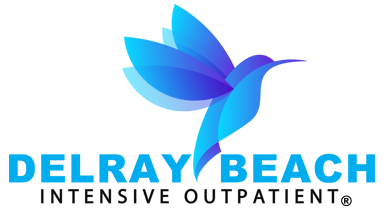The opioid epidemic in the United States continues to affect millions each year. This prescription pain medication can be equally addictive whether consumed in legal or illicit form. What follows is more information about opiate addiction, including the signs to watch for if you suspect your loved one is struggling with opioid abuse.
How Dangerous Is Opiate Addiction?
Opioid use disorder is very dangerous for several reasons; in addition to causing the release of endorphins in large amounts, opiates also reduce and eventually cease natural endorphin production in the body, requiring subsequently higher amounts of the drug.
Those with opiate addiction also carry a high risk of relapse, due to the fact that their compulsion to use only strengthens with time. Developing an addiction to opiates can also cause intense and dangerous withdrawal symptoms.
As well, the risk of opioid overdose is very high for those who ingest large amounts of the drug through pathways such as injection or inhalation.
Opioid Addiction Signs You May Recognize
An addiction to opiates can manifest itself in the following ways. The next step after witnessing any of the following signs of drug abuse in your loved one is to enroll them in addiction treatment programs as soon as possible.
Mood and Behavioral Signs
- Exhibiting signs of depression
- Excessive mood swings ranging from hostility to elation
- Consuming opioids in a way other than prescribed by a doctor
- Misplacing medication or having to borrow medication from others
- Using the drug as a way to avoid opioid withdrawal symptoms
- Withdrawing from family members
- Abandoning previously enjoyed activities
- “Doctor shopping” or seeking opiate prescriptions from several doctors
- Failing to groom oneself via showering or wearing clean clothes
- Inexplicable irritability
- Confusion
- Defensiveness when asked about their whereabouts
- Inability to make decisions
- Engaging in high-risk behaviour, including unprotected sex
- Uncharacteristic hyperactivity or total lack of motivation
Physical Signs
- Slow or shallow breathing
- Sleep pattern changes
- Being excessively drowsy
- Weight loss
- Slurring of speech
- Small pupils
- Digestive problems
- Constipation
- Headaches
- Inexplicable itching
Be Aware of These Risk Factors
The risk for addiction can increase if any of the following risk factors are also present:
- An existing untreated mental illness or behavioral health illness
- Excessive amounts of stress experienced over a short or long period of time
- Witnessing family members or others engaging in substance abuse
- Being of a younger age
- Long-term use of illicit or prescription opioids
Comprehensive Treatment for Substance Use Disorders

If you’ve noticed the above signs of opioid addiction in your loved one, the next step is getting them the right treatment. Delray Beach Intensive Outpatient is a leading center offering substance abuse treatment in South Florida.
We set and maintain the highest standards, applying a proven combination of innovative treatments and established methods in our intensive outpatient programs. Treatment is customized for your loved one’s needs and preferences, with the goal of providing the support and tools needed for long-term recovery.
We invite you to take the first step by calling us at (561) 678-0618.
